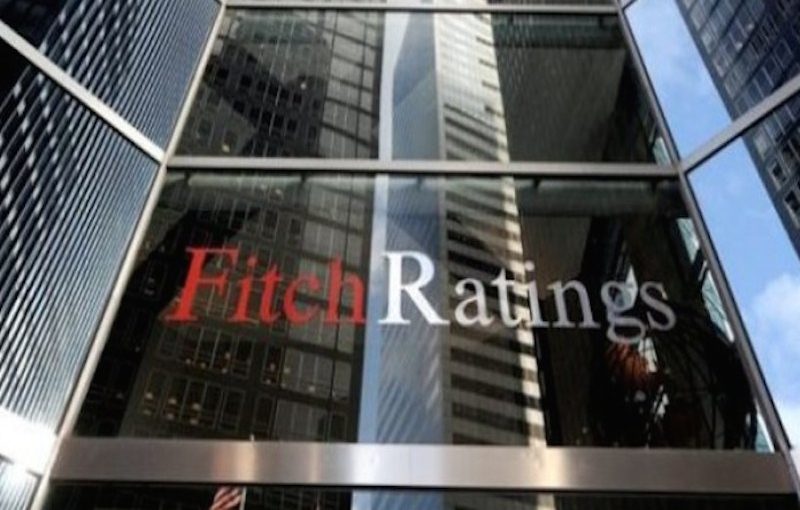Mozambique: Community management of natural resources 'increasingly important' to mitigate climate ...
Fitch affirms Mozambique’s Foreign Currency IDR at ‘RD’

Fitch Ratings has affirmed Mozambique’s Long-Term Foreign-Currency Issuer Default Rating (IDR) at ‘RD’ and Long-Term Local Currency IDR at ‘CC’.
The Long-Term IDRs do not have Outlooks.
The Short-Term Foreign- and Local-Currency IDRs have been affirmed at ‘C’ and the Country Ceiling at ‘B-‘.
KEY RATING DRIVERS
The affirmation of the Long-Term Foreign-Currency IDR at ‘RD’ reflects the inability of the Mozambican government to cure the default on external debt to private creditors.
Since Fitch downgraded Mozambique to ‘RD’ in November 2016, the sovereign has missed two further external payments: an USD60 million interest payment on a sovereign Eurobond due January and an USD119 million payment on a guaranteed loan to state-owned company Proindicus due March.
The Mozambique government has yet to reach an agreement with creditors that would allow it to service its outstanding debt.
There is considerable uncertainty regarding the timing and type of restructuring with existing loan and bondholders and how potential inter-creditor disputes will play out.
Fitch expects the process of curing Mozambique’s default to be protracted.
Some investors are waiting for renewed IMF support and the completion of an audit of Mozambique’s SOEs to discuss debt restructuring.
The audit was originally set to be completed by end February but has been postponed to end April, and Fitch understands its findings will only be published in its entirety by end-July.
Moreover, there is still no clear timetable for a renewed IMF programme.
The restructuring of only commercial debt would leave Mozambique with a weak debt profile, as it is multilateral and bilateral debt, which accounts for 83% of total external public debt.
At present there is little indication that debt to these creditors will be rescheduled or restructured. General government debt in Mozambique stood at 120% of GDP at end-2016, double the ‘B’/’C’/’D’ median.
Economic growth was only 3.3% in 2016 (the weakest performance in 15 years) as domestic consumption and investment were badly hit by the effects of the debt crisis.
Fitch expects a gradual pick-up in economic activity in 2017, helped by a recovery in extractive industries, in particular coal and aluminium exports.
We estimate medium-term potential growth at 6%-7%, highlighting the country’s positive demographic profile and ongoing investment in extractive sectors.
The government’s efforts to contain expenditure and generate extra revenue to offset the fall in external aid last year proved largely insufficient, with the deficit standing at close to 6.5% of GDP. In order to establish trust with external institutions further consolidation measures have been announced. Combined with higher growth, this should lead to the deficit gradually narrowing in 2017-18. The sale of Eni’s stake in a large LNG field should result in a one-off increase in capital income tax, but there is no certainty as to how the government plans to use these proceeds.
Mozambique’s external position is improving, in line with a recovery in coal and aluminium prices. This has been reflected in the strengthening of the currency, by around 17% since October.
Fitch now expects the current account deficit to fall to around 30% of GDP in 2018, and be financed primarily by FDI.
Reserve coverage should average three months of current account receipts in 2017-18.
SOVEREIGN RATING MODEL (SRM) and QUALITATIVE OVERLAY (QO)
Fitch’s proprietary SRM assigns Mozambique a score equivalent to a rating of ‘CCC’ or below on the Long-Term FC IDR scale.
Fitch’s sovereign rating committee decided to maintain the Long-Term Foreign Currency IDR at ‘RD’, in line with the Key Rating Drivers mentioned above and reflecting that the SRM score is equivalent to ‘CCC or below’.
Fitch’s SRM is the agency’s proprietary multiple regression rating model that employs 18 variables based on three year centred averages, including one year of forecasts, to produce a score equivalent to a LT FC IDR.
Fitch’s QO is a forward-looking qualitative framework designed to allow for adjustment to the SRM output to assign the final rating, reflecting factors within our criteria that are not fully quantifiable and/or not fully reflected in the SRM.
RATING SENSITIVITIES
The curing of the default, such as through a debt restructuring leading to a normalisation of relations with its creditors would lead to an upgrade of the Long-Term Foreign-Currency IDR. At such time, Fitch would review Mozambique’s ratings and upgrade the ratings to a level consistent with the sovereign’s ability and willingness to service debt, as well as its economic fundamentals.
KEY ASSUMPTIONS
Fitch assumes that broad political stability will be maintained despite sporadic skirmishes between government forces and guerrillas associated with the main opposition party RENAMO.
Fitch forecasts Brent oil prices to average USD52.5 per barrel in 2017 and USD55 in 2018.













Leave a Reply
Be the First to Comment!
You must be logged in to post a comment.
You must be logged in to post a comment.